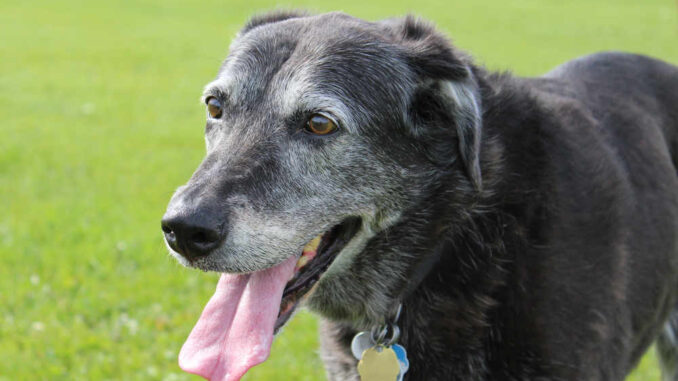
This article was updated on September 3rd, 2023
In my practice, it is not uncommon for owners to casually mention, during their dog’s annual wellness visit, that their senior dog is panting excessively or more than usual. Some dog owners find this panting concerning, while others are confident that it’s a normal, age-related annoyance and not anything that warrants an investigation.
The truth, however, is somewhere in the middle. It’s true that many older dogs do pant more than younger dogs. Sometimes, this panting has an innocuous cause, but in other cases this panting can indicate the presence of a serious underlying medical condition. Read on to learn more about panting in senior dogs.
When Should You Be Concerned About Excessive Panting in an Old Dog?
An increase in panting is relatively common as dogs age, and it can be associated with a number of underlying conditions. These conditions range from mild to severe.
If your senior dog suddenly started panting excessively:In some cases, panting may be a brand-new finding that arises suddenly. If this happens to your dog, try to identify a cause for the panting. Perhaps your home is hotter than usual or your dog is extremely excited. If you can’t find a cause for your dog’s panting and your dog’s heavy panting persists for more than an hour or two, this could be a sign of a serious underlying condition. Heavy panting that comes on suddenly, especially if accompanied by other signs of illness or distress, should be evaluated by a veterinarian as soon as possible.
If your senior dog started panting a lot gradually: Other times, an increase in panting comes on gradually. You may not notice a difference from one day to the next, but eventually, you realize that your older dog now pants more than he did when he was younger. This, too, can suggest an underlying cause for concern. An old dog with a gradual onset of panting doesn’t require an emergency veterinary visit, but you should probably schedule an appointment at your earliest convenience.
Signs That Your Senior Dog Should Get a Checkup
Potential indications that your senior dog’s excessive panting should be evaluated include (but is not limited to):
- An increase in the frequency of your dog’s panting
- An increase in the severity of your dog’s panting
- A change in the sound of your dog’s panting
- Panting that occurs when your dog is not hot or anxious
- Panting that is accompanied by coughing or other respiratory changes
- Panting that is accompanied by lethargy or other signs of illness
If your dog’s panting is concerning, it’s time to seek veterinary attention. Your veterinarian can perform a thorough evaluation to determine whether there’s an underlying medical condition responsible for your dog’s panting.
Is My Dog in Pain?
Pain is one of many reasons that a senior dog may pant excessively. While pain may be the underlying cause of panting in some dogs, not every dog that pants is painful.
If your dog is painful from arthritis, you might expect to see other signs such as limping, decreased activity, trouble climbing stairs, and difficulty rising from rest. Other causes of pain may cause a variety of clinical signs, depending on which part of the body is painful. Learn more: “Is my senior dog in pain?“.
Top 8 Reasons Causing Senior Dogs to Pant Excessively
There are a number of medical conditions that can lead to increased panting. Many of these conditions are more common in older dogs than younger dogs. This means we tend to become a bit more concerned about a new onset of panting in an older dog.
1. Pain: Pain is a common cause of increased panting, especially in older dogs. Many dogs develop some degree of arthritis in their joints as they age, which can lead to pain both with movement and at rest. Dogs with arthritis often pant more than usual. Dogs don’t tent to show that they are in pain as quickly, or easily, as humans do. To recognize pain in your dog, watch for changes in your dog’s normal behavior, attitude and personality. Learn more with our articles “Is my senior dog in pain?” and “pain relief for senior dogs”.
2. Obesity: Just like overweight humans, dogs that are carrying more weight may struggle to breathe while walking or running, or even while they are at rest (read our article: Dog Panting When Resting). It’s not uncommon for a dog to experience weight gain with age, due to a slowing metabolism, and this weight gain can cause an increase in panting.
3. Anxiety: While all dogs occasionally pant due to excitement or anxiety, dogs with persistent anxiety may have an overall increase in panting. As dogs age, they can experience a mental change known as cognitive dysfunction. Similar to dementia in people, cognitive dysfunction can cause anxiety or distress in dogs that feel unfamiliar with their environment. This can lead to an increase in panting accompanied by other unusual behaviors. Learn more about senior dog anxiety and remedies to help with anxiety.
4. Respiratory disease: Respiratory conditions, such as laryngeal paralysis, chronic bronchitis, lung tumors, and pneumonia, can lead to an increase in panting. These dogs are struggling to take in adequate oxygen, which may be accompanied by an increase in respiratory rate and effort.
5. Heart disease: Any disease affecting the heart can contribute to heart failure. These dogs may struggle to take in adequate oxygen and circulate it throughout their body, and these difficulties can contribute to panting in dogs. Learn more about heart disease in senior dogs.
6. Drug side effects: As dogs become older, they may begin taking more prescription medications for various age-related conditions. Some medications, such as prednisone, may contribute to increased panting as a side effect.
7. Cushing’s disease: Cushing’s disease is a hormonal condition in which a dog’s body produces too much cortisol. One of the clinical effects of Cushing’s disease (among others) is an increase in panting.
8. Fever: A fever can lead a dog to pant more than usual, in the same way that a hot dog will pant to cool themselves. This is a relatively uncommon cause of panting in dogs. Learn more: how to tell if your dog has a fever.
Ensure That Your Dog is Comfortable and Remove Potential Stressors
If your dog is panting, begin by addressing the most common causes of painting in normal dogs: heat, exercise, and excitement.
- Bring your dog into the air conditioning if they are outdoors
- Ensure that your dog’s environment is comfortably cool
- Encourage your dog to lie down on a dog bed or other comfortable resting area
- Remove stressors from your dog’s environment
If these simple steps resolve your dog’s panting, there’s probably nothing to worry about. Monitor your dog for future episodes of panting, and seek veterinary care if you continue to notice frequent panting. However, if your dog continues panting despite your efforts to cool and calm them, you should seek veterinary care.
Veterinary Approach
Your veterinarian will begin by performing a thorough physical exam on your dog. They will listen to your dog’s heart and lungs, examine your dog’s lymph nodes, palpate your dog’s abdomen, and assess your dog’s spine and joints.
Based on the physical exam results, your veterinarian will recommend additional tests. These tests may include:
- x-rays (to rule out arthritis, heart disease, and/or lung disease),
- laboratory tests (such as bloodwork and urinalysis), or
- other recommended diagnostics.
Depending on the results of these tests, your veterinarian will be able to recommend a diagnosis and treatment plan. Your dog’s treatments will depend on the underlying cause of their panting.
For example, arthritis pain is often treated with pain medications, while obesity may be treated with a prescription diet. Your veterinarian may prescribe medications to treat anxiety, respiratory disease, heart disease, Cushing’s disease, or infections that may cause a fever.
If your dog’s panting is attributed to prescription medications, your veterinarian will work with you to determine whether a medication change is needed.
When is Panting Normal for Senior Dogs?
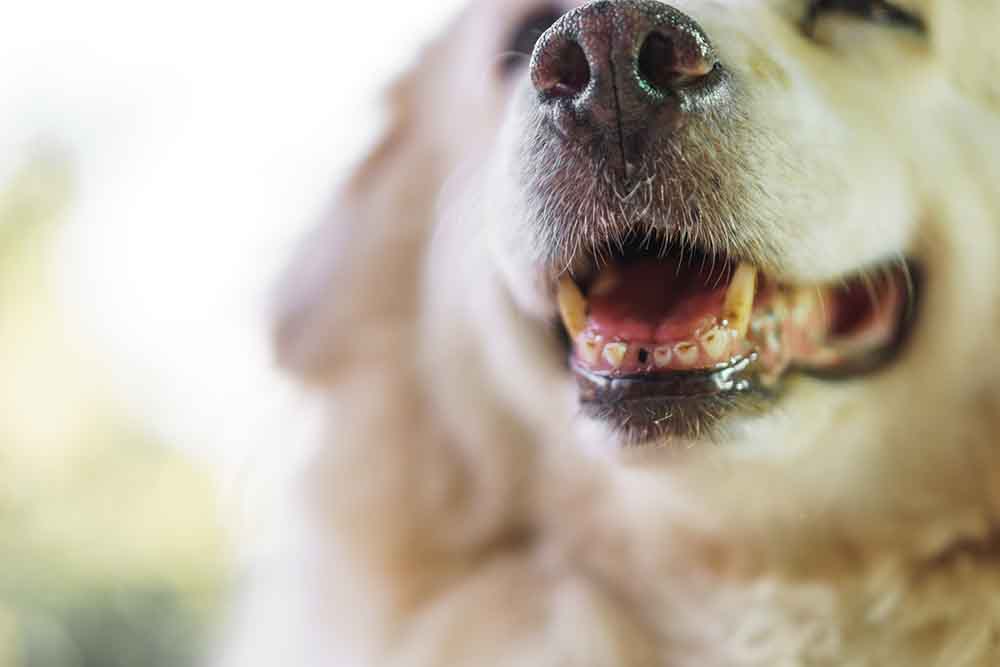
All dogs pant from time to time, especially when they are hot, exercising, excited, or stressed.
Unlike humans, dogs lack sweat glands across much of their body. (The only sweat glands on a dog are located on the paws.) Therefore, dogs cool themselves primarily through panting. If the weather is warm or your dog has been laying in the sunshine, panting can serve as a normal way for your dog to cool themselves.
Dogs also tend to pant with exertion. This is particularly true when they become older. If you and your dog are playing a vigorous game of fetch, panting can be a normal way for your to stay cool and get more oxygen.
Your dog’s emotional state can also trigger panting. This can occur when a dog is excited (for example, when you have visitors in your house and your dog is excited about the extra attention) or when a dog is anxious (if you are taking your dog to the groomer or veterinary clinic). Any increase in arousal can trigger panting, and this doesn’t necessarily suggest a problem.
Summary
Panting in older dogs can be a completely normal response to environmental or emotional factors. However, it can also indicate an underlying medical condition. If your dog experiences a sudden or prolonged increase in their panting, seek veterinary attention. Your veterinarian can help you determine whether your dog’s panting is normal or worrisome, allowing you to seek any needed testing and treatments for your dog.
Learn more from our veterinarians:
Disclaimer: This website's content is not a substitute for veterinary care. Always consult with your veterinarian for healthcare decisions. Read More.


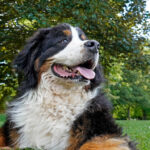
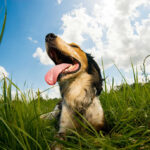

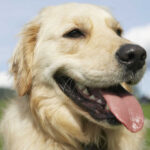


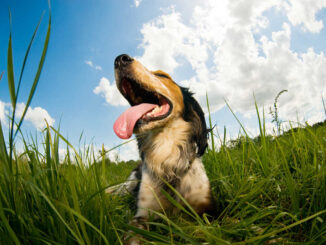
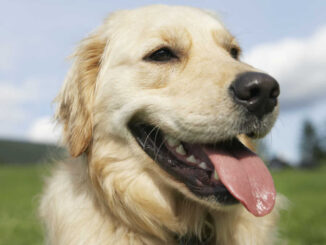

Be the first to comment